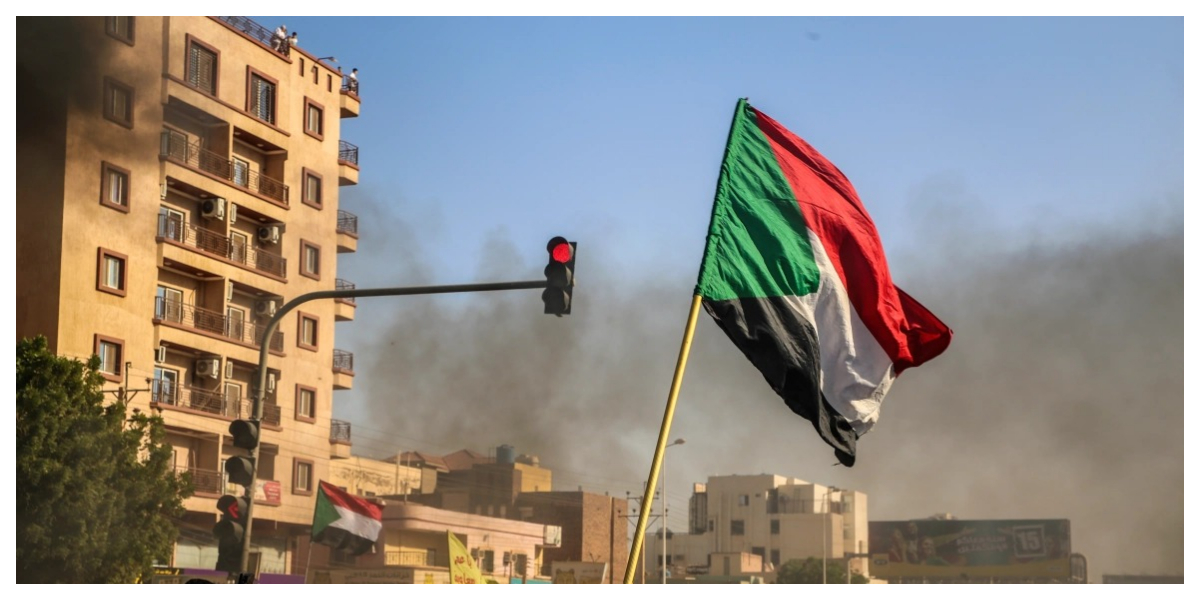- The death toll from protest-related violence has reached 113 since the coup.
- The latest fatality reported after a demonstrator died from wounds sustained at a June 24 rally.
- Activists demand the restoration of the transition to civilian rule, that was launched shortly after the 2019 ouster of President Omar al-Bashir.
Sudanese protesters gathered once more. Friday, and security forces fired tear gas at them, a day after a tens of thousands-strong protest was met with the deadliest violence this year.
Hundreds of activists gathered near the presidential palace in Khartoum after at least nine people were killed during protests against a military takeover led by army chief Abdel Fattah al-Burhan last October.
“The people want to bring down Burhan,” some protesters chanted while others, carrying photos of people killed in months of protest-related violence, yelled: “We call for retribution!”
The death toll from protest-related violence has reached 113 since the coup, with the latest fatality reported Friday after a demonstrator died from wounds sustained at a June 24 rally, according to pro-democracy medics.
[embedpost slug=”four-sudan-protesters-killed-in-mass-rallies-against-army-rule/”]
The activists demand the restoration of the transition to civilian rule, that was launched shortly after the 2019 ouster of veteran president Omar al-Bashir but which has been derailed since.
The latest crackdown defied calls for calm from the international community.
“Tens of thousands of Sudanese took to the street today to demand democracy. We support their aspirations,” said the US State Department’s Bureau for African Affairs on Twitter.
“We condemn in the strongest terms the use of live fire by security forces against civilians. We offer our condolences to those who lost family members.”
The “violence needs to end,” demanded UN special representative Volker Perthes.
Sudan’s police meanwhile accused protesters of wounding 96 police and 129 military officers, “some critically”, on Thursday, as well as damaging vehicles and starting fires.
Last year’s coup plunged Sudan into deepening political and economic turmoil, which has seen rising consumer prices and life-threatening food shortages.
It has also sparked near-weekly protests, as well as ethnic clashes.
The United Nations, the African Union and regional bloc IGAD have tried to facilitate talks between the generals and civilians, but mediation efforts have been boycotted by the main civilian factions.
On Friday, the three bodies jointly condemned the violence and “the use of excessive force by security forces and lack of accountability for such actions, despite repeated commitments by authorities”.
Norway’s ambassador to Sudan also condemned reports of “torture, sexual violence and inhumane treatment”.
“We request lawyers’ access to detainees and their access to health,” ambassador Therese Loken Gheziel wrote on Twitter. “Protection from torture is indispensable”.
2. We request lawyers’ access to detainees & their access to health. Protection from torture is indispensable. All detained for freedom of expression & freedom of assembly must be released immediately.
— Ambassador Therese Løken Gheziel 💚❤️🤍🖤 (@NorwayAmbSudan) July 1, 2022
The protests on Thursday came on the anniversary of a 1989 coup that toppled Sudan’s last elected civilian government and ushered in three decades of iron-fisted rule by Islamist-backed Bashir.
It was also the anniversary of protests in 2019 demanding that the generals who had deposed Bashir in a palace coup earlier that year hand over power to civilians.
These demonstrations resulted in the formation of the civilian-military transitional government, which was overthrown in last year’s coup.
[embedpost slug=”sudan-protesters-blockade-roads-to-key-red-sea-port/”]





















